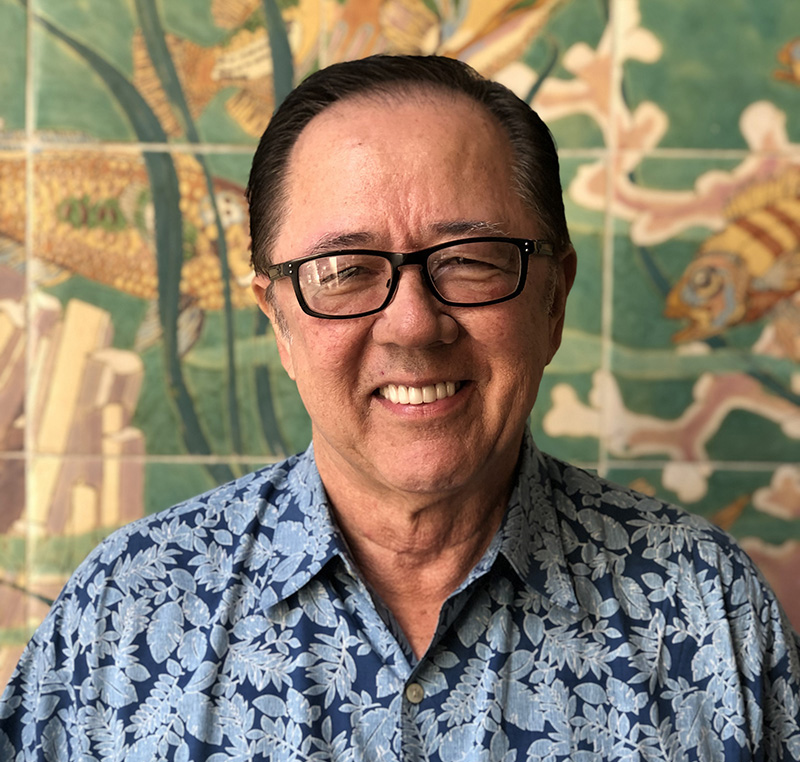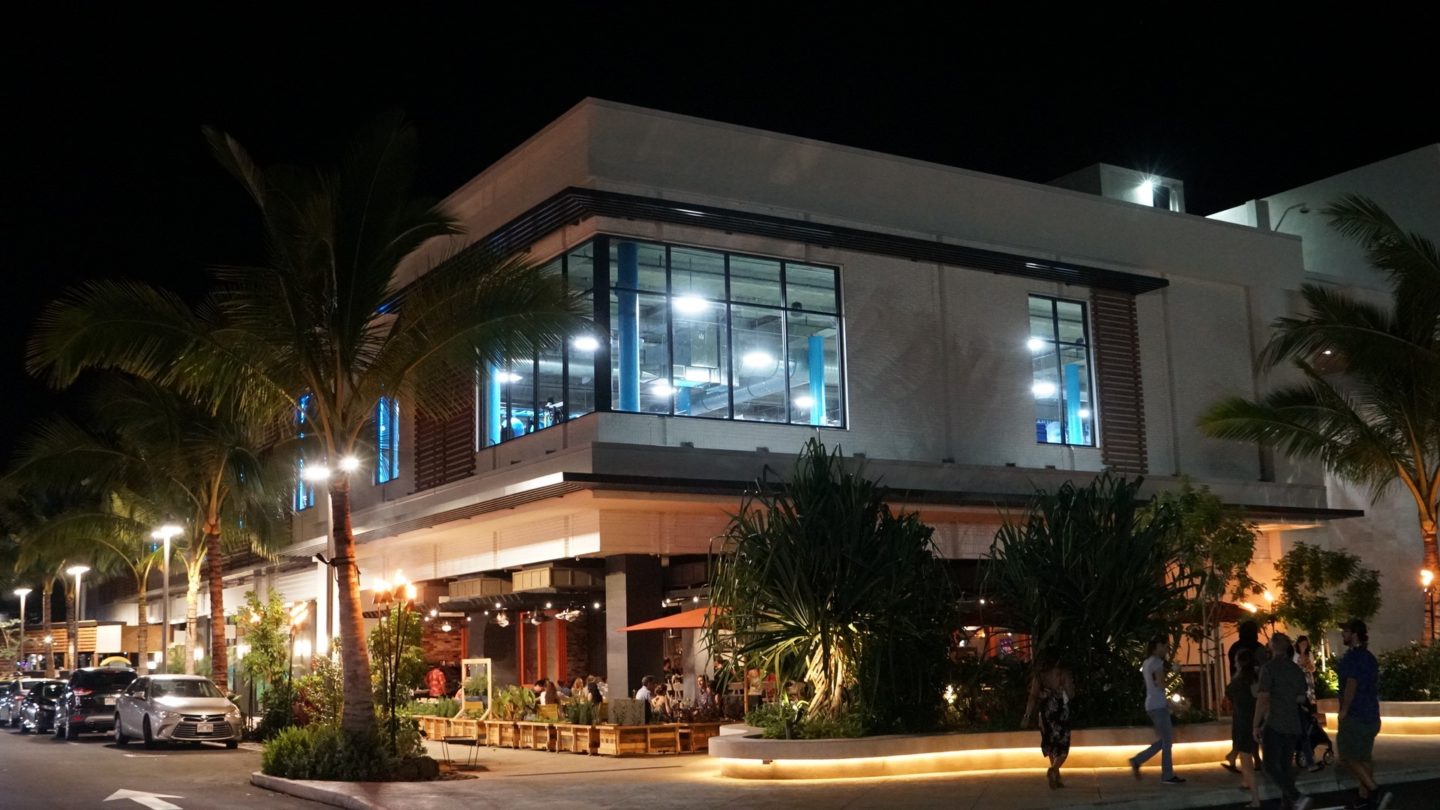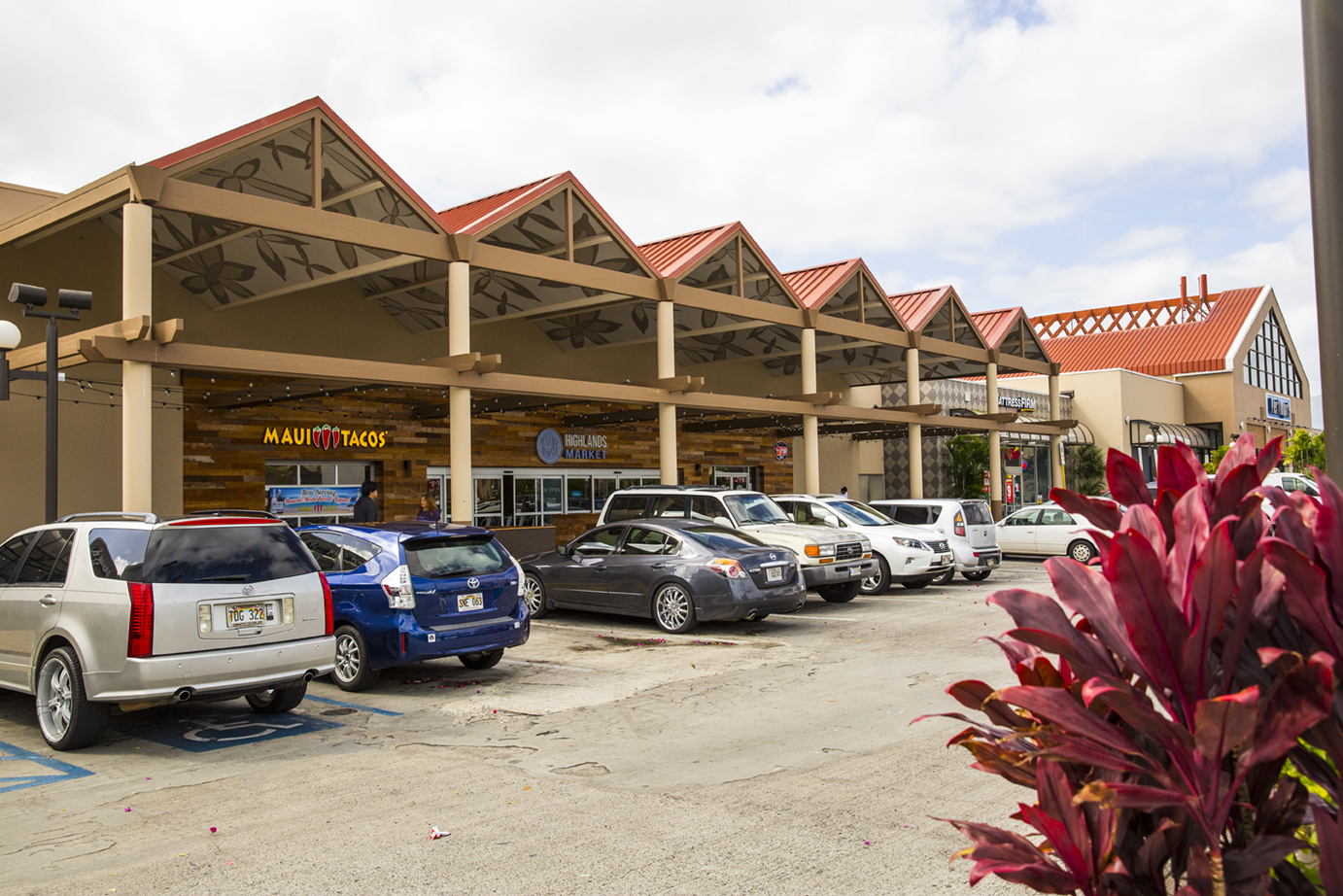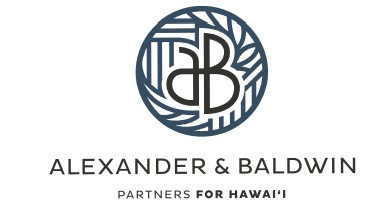
Original article posted in MidWeek | Photo courtesy Anthony Consillio
Since its founding in 1870, Big Five sugar titan Alexander & Baldwin has evolved into a commercial real estate developer — and partner to the communities it continues to invest in. Today, the company is capably led by president and CEO Chris Benjamin.
For 150 years, Alexander & Baldwin has been a major player in Hawai‘i.
The Maui-based sugar plantation founded by Samuel Alexander and Henry Baldwin that started it all is a far cry from today’s commercial real estate juggernaut, one of the top 10 landowners in the state.
Chris Benjamin, president and CEO of Alexander & Baldwin, says that humble legacy still guides the company in its decisions today.
“It was a partnership that started in Hawai‘i, and its business was entirely in Hawai‘i.
“What we try to do is be involved in … the industry we have the biggest impact in and create the most value for our community, employees and shareholders. That’s the real estate industry.”
It wasn’t always this way for Alexander & Baldwin. The company was once highly diversified.
In addition to its signature sugar plantations, the company also invested heavily in agriculture and shipping, as well as expanding its reach to the mainland.
Benjamin even notes that Alexander & Baldwin once owned a potato farm in Idaho, as well as a teakwood manufacturer in Asia at one point.
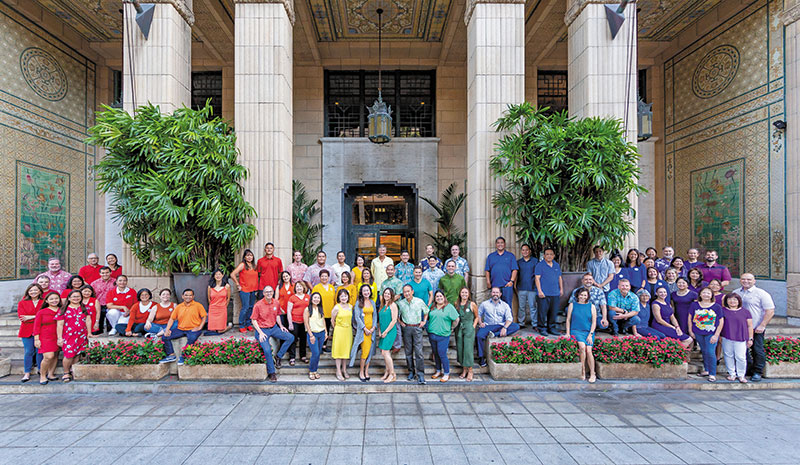
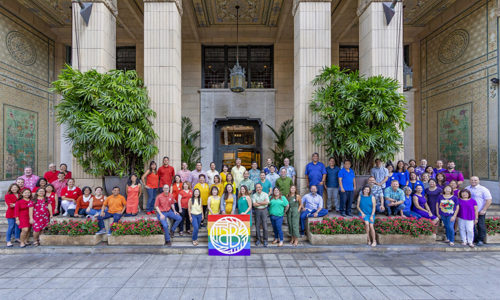
Alexander & Baldwin employees exhibit a little LGBTQ pride, part of the company’s Diversity & Inclusion Initiative.
But eventually, the company realized it was time to return to its roots.
“It’s been about doing what we believe we can do best,” Benjamin explains. “The first part of that was deciding to come back to Hawai‘i. We had operations and real estate assets across the country, but we truly believe we know Hawai‘i the best, and that’s where we should be focused.”
So, Alexander & Baldwin decided to specialize in commercial real estate — in particular, in grocery store-anchored shopping centers.
A few of their properties that residents may be familiar with: ‘Aikahi Park Shopping Center, Gateway at Mililani Mauka, Hōkūlei Village, Kailua Town, Kāne‘ohe Bay Shopping Center, Kunia Shopping Center, Laulani Village, Mānoa Marketplace, Pearl Highlands Center, Wai‘anae Mall, Waipi‘o Shopping Center — and the list goes on.
“Our focus is on real estate that focuses on the daily lives of Hawai‘i residents,” Benjamin says.
“We are not owners of big malls or Waikīkī retail. We are owners of your neighborhood shopping center.
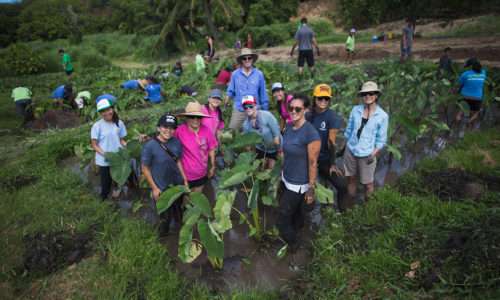
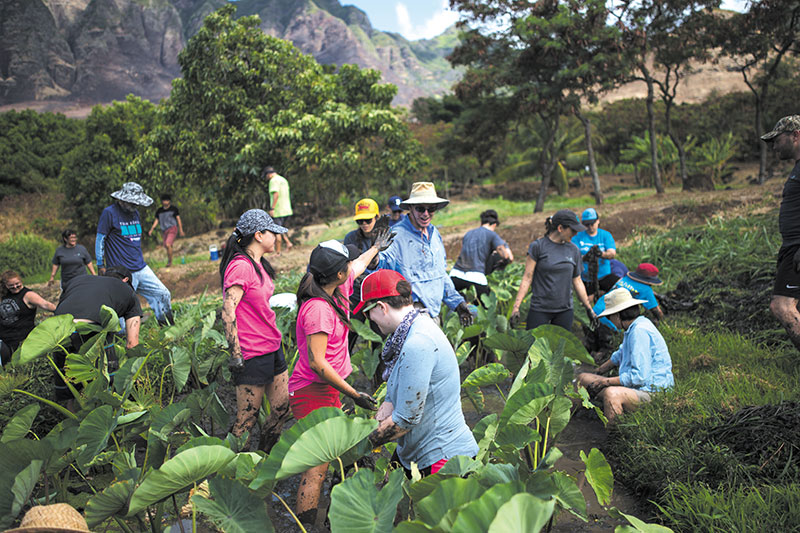
Alexander & Baldwin has been a supporter (and participant) of The Trust for Public Land’s “A Day on the Land” program since its inception.
“These are centers that help meet the daily needs of Hawai‘i’s citizens, not typically the needs of visitors or tourists.”
This focus ensures that the company remains in touch with the communities its founders cherished, Benjamin says, citing Alexander & Baldwin’s ability to build gathering places and find tenants that offer services residents want, as well as ensuring the tenants themselves can thrive.
Admittedly, sometimes the company does clash with its communities — as recent events in Kailua, Mānoa and other areas attest to.
Benjamin says the company does its best to engage with its detractors.
“The only way to start building trust is to acknowledge it doesn’t exist and go to greater lengths to listen and find mutually beneficial decisions.”
Alexander & Baldwin, for example, sent out a survey to all Kailua residents — some 16,000 homes — to better understand what the community prioritizes.
It also published the results, even those that painted the company in a less than flattering light.
“It’s important to remember that we’re here for the very long term,” Benjamin says. “We’re not a real estate owner that’s going to flip properties in a short amount of time. We’re not going to pretty up a shopping center and sell it.
“We can do what’s right for a community over the long term because what’s right for the community is good for us.”
Of course, business isn’t the only way Alexander & Baldwin tries to serve Hawai‘i.
“The whole culture of giving back to the community and being part of the community really goes back to our founders,” says Meredith Ching, executive vice president, external affairs.
“We have these old records of donations of land and cash donations to the Maui Swim Club from Samuel Alexander and Henry Baldwin themselves.
“It’s just something that’s in our DNA.”
Benjamin says that the company typically gives 1-2 percent of its pre-tax income in donations to the community.
Of course, sometimes Alexander & Baldwin uses its real estate clout to give back, too.
Benjamin cites the story of charter school DreamHouse ‘Ewa Beach.
“We were able to facilitate a lease,” he says. “It wasn’t just a matter of it being a convenient location for them. They literally could not have started up as a school if they did not get a lease or get into a space by a certain date; they would lose their funding.
“They had tried virtually everywhere in the ‘Ewa community.”
But the company had a space in Laulani Shopping Center that would work as a temporary facility until the school found a more suitable location.
So they worked together to make it happen.
Alexander & Baldwin also puts special emphasis on serving its employees and empowering them to give in their ways, too. Diversity is a big priority, Benjamin says.
In recognition of the company’s 150th anniversary, two new giving initiatives are coming up, says Ching.
The first, Kōkua 150, will allow employees to select a charity of their choice. The company will gift every single one a $150 donation in an employee’s name.
“We hope it will make (employees) more aware of their communities and also make communities more aware of Alexander & Baldwin’s support of their employees and programs,” Ching says.
The second push, 150 Days of Giving, begins Jan. 20. Company employees will band together to give “sweat equity” to various projects.
The first is a partnership with Kupu and the state Department of Land and Natural Resources to clean up and replant Hāmākua Marsh State Wildlife Sanctuary.
This is all, of course, in addition to pre-existing programs where the company matches employee donations to nonprofits, as well as its consistent support of Aloha United Way and its related charities.
So, in what direction will this 150-year-old company go in the next 150 years?
“I’m sure no one would have predicted we’d be a commercial real estate company 150 years ago,” Benjamin quips.
“I believe some things are certain. We will continue to focus on Hawai‘i, take a long-term view, want to be partners with the community — and that we will be in commercial real estate.
“We may shift our focus in some ways, and new opportunities may emerge, and the way we, as a society, utilize shopping centers and retail will probably evolve quite a bit.
“The primary thing that won’t change is our commitment to Hawai‘i.”
A BIT ABOUT BENJAMIN
President and CEO Chris Benjamin — the 18-year Alexander & Baldwin employee who now heads the whole shebang — admits his path has turned in unexpected ways.
He moved to Hawai‘i in 1992, busily working on startups in Asia and the mainland. But he soon found himself admiring Alexander & Baldwin’s storied headquarters in downtown Honolulu, as well as the company’s long legacy in the state.
“I applied for a job here in large part because it was diversified. It had a wide range of business opportunities, and I found that exciting.
“The business I had the least experience in was the real estate business, so it’s a bit ironic that today I’m running a real estate business,” he jokes.
But he truly appreciates the company culture. He joined three months before 9/11, and was touched by the email that then-CEO W. Allen Doane sent out — a truly heartfelt message about his own feelings about the tragedy, as well as ways the company could help.
Benjamin, the 16th CEO in Alexander & Baldwin’s history, genuinely loves his job.
“I value working for a company that values that (compassion) in its leadership. It doesn’t mean we don’t want to make a profit; we have to make a profit, but we can do it in a way that’s respectful of the community.”

